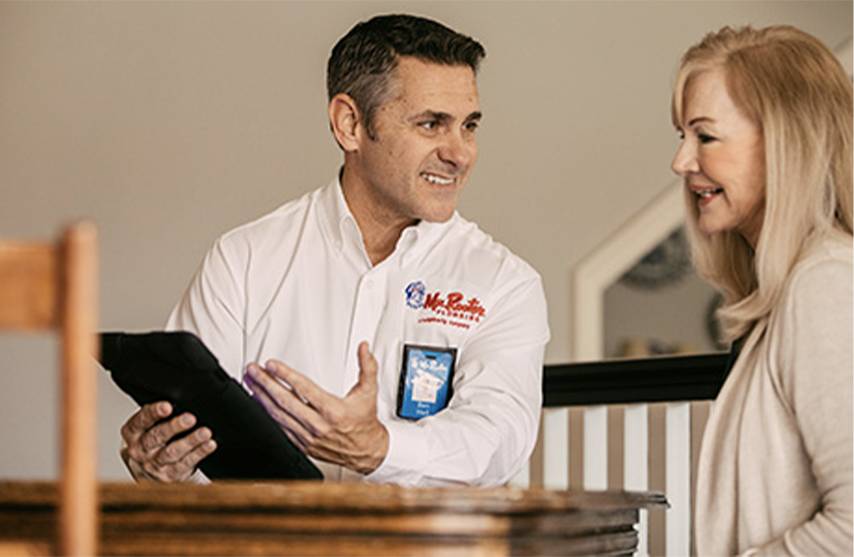
The water heater gets a lot done on it's own. Though it's job is to simply heat water, a residential water heater can work around the clock and every day of the year. Still, the water heater is not perfect. It is vulnerable to wear and tear as well as corrosion, rusting, accidental damage, and neglect. A leaking water heater is more common than you might think, but there is no reason to panic. In this article brought to you by Mr. Rooter Plumbing of Youngstown, we will go over some of the causes of water leaks and what you should do about it. If you prefer to hire a trusted plumber for the job, then call Mr. Rooter Plumbing today.
The average residential water heater produces around 15,000 gallons of hot water per year. A commercial water heater produces much more. Fortunately, the water heater as well as connected pipes and drains are durable. They are not indestructible though. There are several threats, and we will go over a few here.
The first threat is pressure. The water pressure can be adjusted by a plumber and should be between 40 and 70 psi. Water pressure can also be indirectly affected. Overheated water can increase pressure in the water heater. Further, pipes and drains can clog, thereby increasing internal pressure. This can shift pipes and drains, force water out of crevices, and even rupture the plumbing.
Water heater components are also susceptible to natural corrosion and rusting. As the material weakens, they are less able to withstand water pressure. Water line connections, including the bolts, pipes, and drains are all vulnerable. Eventually, weak links will perish, causing leaks. The water heater itself can also corrode and break apart.
Finally, there is accidental damage. There is a lot that can go wrong and cause a water heater leak.

As we mentioned earlier, setting the water pressure to 40 and 70 psi is important. To prevent blockages in the water line, we recommend water filtration systems. Periodic drain cleaning is crucial if you want drains flowing seamlessly. As for the pressure within the water heater, the temperature and pressure relief valve on the water heater controls it. Regularly test the relief valve to make sure it's working.
You can't do much to get in the way of corrosion and rusting on pipes, but you can repipe ones before they leak or, worse, burst open. There is something you can do about rusting in the water heater though. Check up on the anode rods and replace them when necessary! The anode rods protect the water heater from corrosion and rust.
What if the damage is done and the water heater is leaking? Turn off the power to the water heater and shut off the water before calling for a repair. Delaying your hot water heater repair can allow small issues to simmer into big problems. Why wait? Mr. Rooter Plumbing of Youngstown is always ready to help.